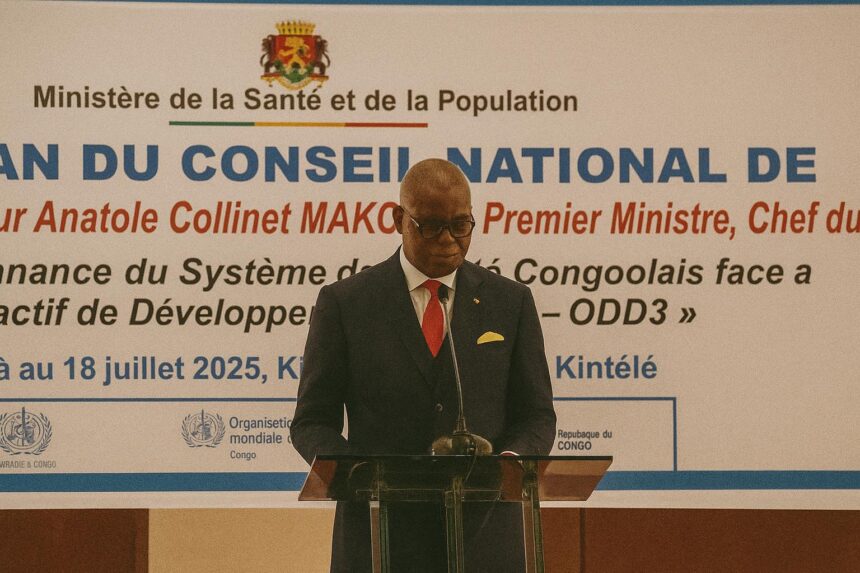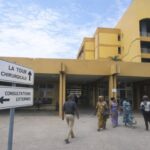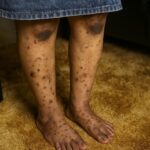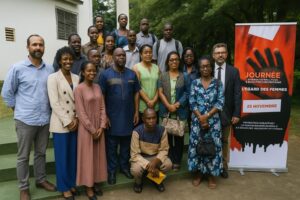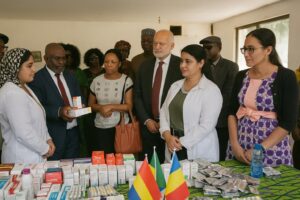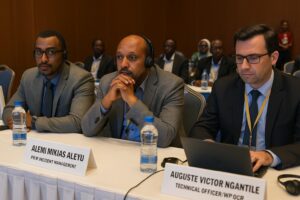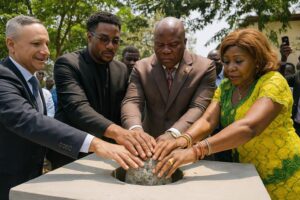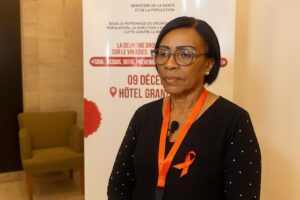Kintélé gathers policy architects of Congo health
Under the vaulted ceilings of the Kintélé International Conference Centre, 16–18 July 2025, ministers, provincial administrators and clinicians convened for the second ordinary session of the National Health Council. Prime Minister Anatole Collinet Makosso framed the gathering as a moment to convert « collective vigilance into collective action », echoing the President’s call for a resilient national fabric. The presence of World Health Organization representative Dr Vincent Dossou Sodjinou, along with envoys from the African Development Bank and several bilateral partners, underscored the diplomatic weight now attached to Congo-Brazzaville’s public-health trajectory (World Health Organization, 2025).
- Kintélé gathers policy architects of Congo health
- Governance ethos under the SDG3 spotlight
- The calculus of healthcare financing in Brazzaville
- Decentralised delivery at the frontline of care
- Emergencies and the doctrine of One Health security
- International partnerships and measured optimism
- From blueprint to bedside: hurdles and horizons
- Strategic signalling to global and domestic audiences
- Quiet confidence in Congo’s evolving health diplomacy
Governance ethos under the SDG3 spotlight
The Council operated beneath the thematic canopy of “Governance of Congo’s Health System and the Challenge of Achieving SDG 3”. Delegates dissected a decade of performance indicators, noting that maternal-mortality ratios have fallen from 378 to 295 per 100 000 live births while non-communicable diseases continue their quiet ascent (UN SDG Tracker, 2024). Dr Sodjinou insisted that prudent stewardship, not merely clinical prowess, will determine whether the constitutional right to health migrates from parchment to practice. His intervention dovetails with Brazzaville’s updated National Development Plan 2022-2026, which elevates health governance to a cross-cutting pillar alongside digitalisation and climate resilience.
The calculus of healthcare financing in Brazzaville
Financial architecture dominated the debates. The Council urged earmarking a tranche of so-called innovative revenues—solid-minerals royalties, telecom levies and carbon-credit proceeds—for the health vote. Experts from the Ministry of Finance argued that such hypothecation could yield an additional 0.7 percent of GDP by 2028, shortening the distance to the Abuja target of 15 percent budgetary allocation to health. Yet seasoned observers warned that revenue tagging must travel hand-in-hand with reinforced audit trails to avoid leakages, a lesson drawn from peer economies in the Central African Economic and Monetary Community (CEMAC, 2023). Minister of Health Professor Jean Rosaire Ibara welcomed the recommendations, reiterating that « equity is not an accessory but the vertebral column of cohesion ».
Decentralised delivery at the frontline of care
Councillors placed the spotlight on districts—the basal layer of Congo’s pyramidal health system—whose operational budgets remain perilously thin. Currently less than five percent of local-government expenditure trickles to primary facilities, a figure the Council seeks to treble by mandating that communes devote 15 percent of their allocations to health centres. Diplomats from donor capitals note that this decentralisation agenda mirrors global evidence indicating that proximity to decision-making improves service uptake, especially in maternal and child health (The Lancet Global Health, 2024). Training modules in public-sector accounting and supply-chain logistics are scheduled to accompany the fiscal devolution, attenuating the risk that funds stall en route to rural dispensaries.
Emergencies and the doctrine of One Health security
Echoes of the 2022 Mpox alert and the poly-crisis mentality fostered by COVID-19 loomed large. The Council endorsed a multisectoral emergency-coordination cell anchored in the “One Health” framework, integrating veterinary, environmental and human-health surveillance. Stocks of personal protective equipment and rapid-diagnostic tests will be pre-positioned according to a dynamic risk map stretching from Pool to Likouala. The measure aligns with the African Union’s Continental Framework for One Health (African Union, 2023) and reassures external partners that Congo-Brazzaville intends to remain a dependable node in regional epidemic intelligence.
International partnerships and measured optimism
Paris, Beijing and Washington have each signalled readiness to calibrate assistance packages once Congo’s new financing and decentralisation protocols clear cabinet. The World Bank’s Health Systems Strengthening Project, now in design phase, could funnel concessional credit toward diagnostic equipment, while the Global Fund is considering an $18-million malaria envelope contingent on enhanced accountability metrics. Analysts in Pretoria and Addis Ababa describe Brazzaville’s posture as « cautiously transformative », noting that the political leadership continues to frame reform within the wider quest for economic diversification, an agenda championed by President Denis Sassou Nguesso at successive New Partnership for Africa’s Development fora.
From blueprint to bedside: hurdles and horizons
The Council’s communiqués make expansive reading, yet translation into routine clinical practice will hinge on steady macroeconomic recovery and disciplined procurement. Health economists remind us that per-capita spending, at roughly US$ 66, remains below the US$ 86 benchmark the WHO associates with essential-package coverage. Nonetheless, the convergence of political will, external sympathy and technocratic clarity gives Brazzaville a fighting chance to compress the gap. As veteran paediatrician Dr Joséphine Okemba reflected in corridor exchanges, « Patients do not feel a memorandum, they feel an antibiotic that arrives on time ».
Strategic signalling to global and domestic audiences
For the diplomatic community, the Kintélé resolutions serve as a barometer of Congo-Brazzaville’s readiness to absorb international support responsibly. The articulation of numeric targets, the promise of geocoded transparency portals and the explicit tethering to SDG 3 send constructive signals to partners weighing budget-support tranches. Domestically, the Council bolsters a narrative of inclusive modernisation that has underpinned presidential messaging since the 2021 Nation’s Address. The challenge now lies in sustaining momentum beyond the news cycle, a task that will test the durability of inter-ministerial coordination and the elasticity of the national purse.
Quiet confidence in Congo’s evolving health diplomacy
The closing gavel in Kintélé did not echo finality but rather the opening cadence of a multi-year reform concerto. Congo-Brazzaville’s health authorities, cushioned by a supportive executive and animated by professional societies, have tabled a blueprint that aspires to make universal health coverage something more than a diplomatic catchphrase. With prudent financing, relentless district empowerment and an unblinking gaze on epidemic threats, the Republic has positioned itself to convert declarations into syringes, and syringes into healthier lives.

